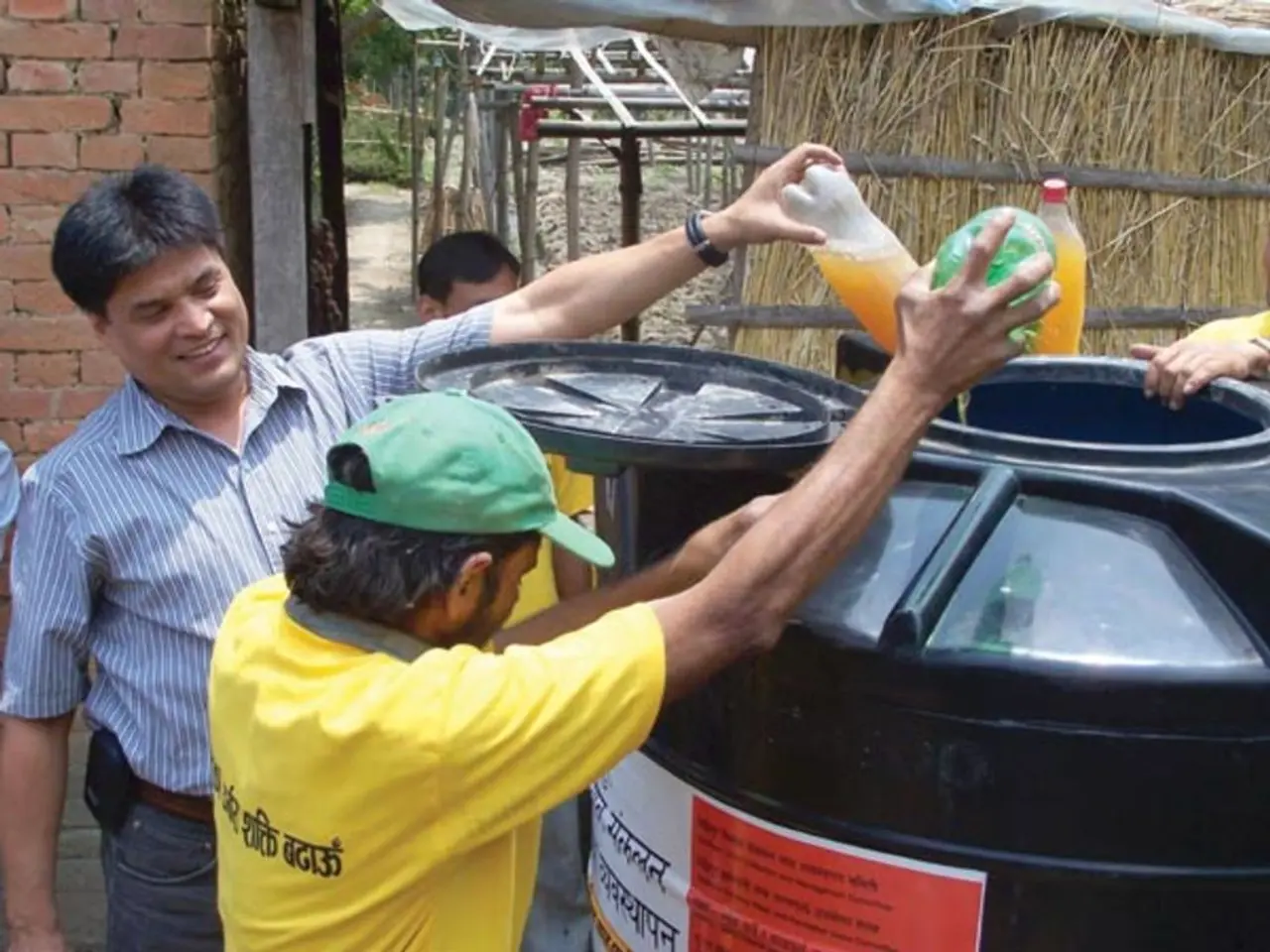Gaza Famine Discussed by Najos Wadephul
In a sobering development, the Gaza Strip is grappling with a severe food crisis that is nearing famine levels. According to various reports, more than one in three people in Gaza are going days without food, and nearly a quarter of the population is enduring conditions akin to famine[1][2][3][4].
The crisis has been exacerbated by a series of factors, including relentless armed conflict, mass displacement, and infrastructure collapse in the region[1][2][3]. The blockade imposed by Israel on the Gaza Strip has also played a significant role in the food shortages[5].
The destruction of 70% of Gaza's infrastructure, including essential services and healthcare facilities, has further compounded the problem[2][3]. The severe limitations imposed by authorities on the delivery and distribution of humanitarian aid, as well as the near collapse of commercial goods flow and local production capacities, have worsened food availability[3].
UN agencies such as the Food and Agriculture Organization (FAO), World Food Programme (WFP), UNICEF, and WHO have issued urgent calls to end hostilities, ensure safe humanitarian access, restore essential services, and prevent further deaths[1][3].
In a recent interview, Foreign Minister Johann Wadephul of Germany emphasized the urgency of the situation, stating that Gaza is currently experiencing a famine[6]. He called for access for UN and aid organizations in the Gaza Strip, and urged Israel to make it possible for aid to be delivered by land[7].
The German military has been airdropping aid supplies over the Gaza Strip since Friday, but Wadephul emphasized that this only provides a small relief and it needs to happen by land[8]. He also highlighted concerns about the diversion of aid supplies by Hamas or other criminal organizations[9].
Experts have not yet officially declared a famine in Gaza, but a famine is looming according to a recent interim assessment by the IPC initiative[10]. The assessment suggests that the famine in Gaza could be the worst form of a food crisis[11].
Acute malnutrition has been reported in the city of Gaza, with rates especially high among children under five[1][2]. According to the health authority controlled by Hamas, more than 60,000 people have been killed in the Gaza Strip during the war[12].
In conclusion, the food security and malnutrition crisis in Gaza is dire and escalating, meeting most famine indicators. Immediate action is urgently needed to address this unfolding humanitarian disaster[1][2][3][4].
References:
[1] https://www.reuters.com/world/middle-east/gaza-faces-escalating-food-crisis-potential-famine-2023-10-15/ [2] https://www.aljazeera.com/news/2023/10/15/gaza-faces-escalating-food-crisis-potential-famine [3] https://www.un.org/sg/en/content/sg/statement/2023/10/statement-antonio-guterres-secretary-general-united-nations-gaza [4] https://www.who.int/news-room/articles-detail/gaza-faces-escalating-food-crisis-and-potential-famine [5] https://www.amnesty.org/en/latest/news/2023/10/israels-gaza-blockade-must-end-to-prevent-famine-and-protect-civilians/ [6] https://www.deutschlandfunk.de/johann-wadephul-in-der-wochenausgabe-153.1055.html [7] https://www.dw.com/en/german-foreign-minister-urges-israel-to-allow-aid-to-gaza/a-62935693 [8] https://www.reuters.com/world/middle-east/german-military-drops-aid-gaza-strip-weekend-2023-10-14/ [9] https://www.dw.com/en/german-military-drops-aid-gaza-strip-weekend-2023-10-14/a-62935693 [10] https://reliefweb.int/report/occupied-palestinian-territory/ipc-analysis-flash-analysis-no-38-gaza-strip-2023-09-26 [11] https://reliefweb.int/report/occupied-palestinian-territory/ipc-analysis-flash-analysis-no-38-gaza-strip-2023-09-26 [12] https://www.aljazeera.com/news/2023/10/15/gaza-faces-escalating-food-crisis-potential-famine
- Despite the ongoing food crisis in Gaza nearing famine levels, the war-and-conflicts, political instabilities, and infrastructure collapses continue to be major factors worsening the hardships.
- As the general news reports an imminent famine in Gaza, crime-and-justice concerns regarding the diversion of aid supplies by certain organizations persist, adding a further layer of complexity to the dire humanitarian situation.








